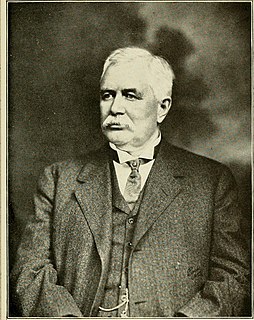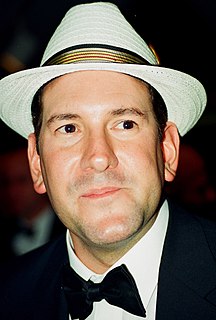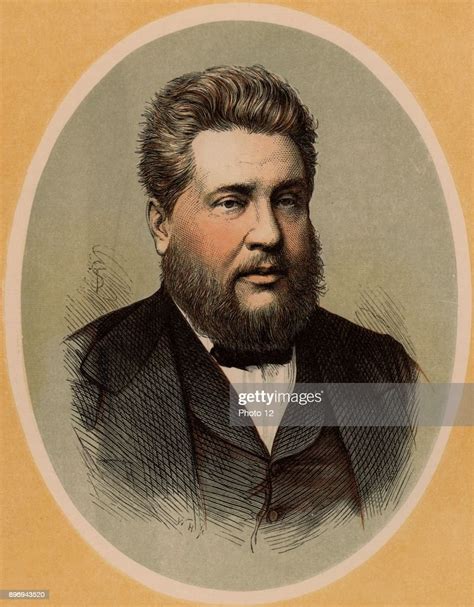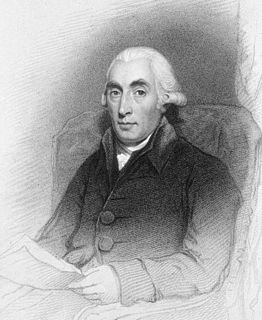Top 625 Grounds Quotes & Sayings - Page 11
Explore popular Grounds quotes.
Last updated on April 18, 2025.
This is about all the bad days in the world. I used to have some little bad days, and I kept them in a little box. And one day, I threw them out into the yard. "Oh, it's just a couple little innocent bad days." Well, we had a big rain. I don't know what it was growing in but I think we used to put eggshells out there and coffee grounds, too. Don't plant your bad days. They grow into weeks. The weeks grow into months. Before you know it you got yourself a bad year. Take it from me. Choke those little bad days. Choke 'em down to nothin'. They're your days. Choke 'em!
People who live in states have as a rule never experienced the state of nature and vice-versa, and have no practical possibility of moving from the one to the other ... On what grounds, then, do people form hypotheses about the relative merits of state and state of nature? ... My contention here is that preferences for political arrangements of society are to a large extent produced by these very arrangements, so that political institutions are either addictive like some drugs, or allergy-inducing like some others, or both, for they may be one thing for some people and the other for others.
For the first time in her life Granny wondered whether there might be something important in all these books people were setting store by these days, although she was opposed to books on strict moral grounds, since she had heard that many of them were written by dead people and therefore it stood to reason reading them would be as bad as necromancy. Among the many things in the infinitely varied universe with which Granny did not hold was talking to dead people, who by all accounts had enough troubles of their own.
One evening, when we were already resting on the floor of our hut, dead tired, soup bowls in hand, a fellow prisoner rushed in and asked us to run out to the assembly grounds and see the wonderful sunset. Standing outside we saw sinister clouds glowing in the west and the whole sky alive with clouds of ever-changing shapes and colors, from steel blue to blood red. The desolate grey mud huts provided a sharp contrast, while the puddles on the muddy ground reflected the glowing sky. Then, after minutes of moving silence, one prisoner said to another, "How beautiful the world could be.
Because they claim to be concerned with the welfare of whole societies, governments arrogate to themselves the right to pass off as mere abstract profit or loss the human unhappiness that their decisions provoke or their negligence permits. It is a duty of an international citizenship to always bring the testimony of people's suffering to the eyes and ears of governments, sufferings for which it's untrue that they are not responsible. The suffering of men must never be a mere silent residue of policy. It grounds an absolute right to stand up and speak to those who hold power.
Some persons hold that, while it is proper for the lawgiver to encourage and exhort men to virtue on moral grounds, in the expectation that those who have had a virtuous moral upbringing will respond, yet he is bound to impose chastisement and penalties on the disobedient and ill-conditioned, and to banish the incorrigible out of the state altogether. For (they argue) although the virtuous man, who guides his life by moral ideals, will be obedient to reason, the base, whose desires are fixed on pleasure, must be chastised by pain, like a beast of burden.
It's too early for there to be any coffee. I stare dully at the empty pot in the common room, while Sam picks up a jar of instant grounds. "Don't," I warn him. He scoops up a heaping spoonful and, heedlessly, shovels it into his mouth. It crunches horribly. Then his eyes go wide. "Dry," he croaks. "Tongue...shriveling." I shake my head, picking up the jar. "It's dehydrated. You're supposed to add water. Good thing you're mostly made of water." He tries to say something. Brown powder dusts his shirt. "Also," I tell him, "that's decaf.
The population explosion is an ecological phenomenon of displacement. Unless we solve that ecological problem of displacing people - to build huge dams, to build motorways, to take away what people need in order to survive - we will keep pumping more and more money into population programs. We will have more and more coercive and violent methods through which women's bodies are treated as experimental grounds for new contraceptives. Yet we will not have a solution to the problem of numbers.
This new enemy seeks to destroy our freedom and impose its views. We value life; the terrorists ruthlessly destroy it. We value education; the terrorists do not believe women should be educated or should have health care, or should leave their homes. We value the right to speak our minds; for the terrorists, free expression can be grounds for execution. We respect people of all faiths and welcome the free practice of religion; our enemy wants to dictate how to think and how to worship even to their fellow Muslims.
I believe we should try to move away from the vocabulary and attitudes which shape the stereotyping of developed and developing country approaches to human rights issues. We are collective custodians of universal human rights standards, and any sense that we fall into camps of "accuser" and "accused" is absolutely corrosive of our joint purposes. The reality is that no group of countries has any grounds for complacency about its own human rights performance and no group of countries does itself justice by automatically slipping into the "victim" mode.
Tell the Queen that there's been a robin red-breast hanging about Kotir grounds. It flies down low and vanishes near the floor. Cludd thinks it might be something to do with those woodlanders. Now, I'm to say nothing to Fortunata or Ashleg... 'I must tell the Queen that a robin has seen Cludd hanging about. No, that's not right. I must tellt he robin taht Cludd has been hanging the Queen.
The primary purpose of the Legislature in establishing "Arbor Day," was to develop and stimulate in the children of the Commonwealth a love and reverence for Nature as revealed in trees and shrubs and flowers. In the language of the statute, "to encourage the planting, protection and preservation of trees and shrubs" was believed to be the most effectual way in which to lead our children to love Nature and reverence Nature's God, and to see the uses to which these natural objects may be put in making our school grounds more healthful and at-tractive.
Creationists reject Darwin's theory of evolution on the grounds that it is "just a theory". This is a valid criticism: evolution is indeed merely "a theory", albeit one with ten billion times more credence than the theory of creationism - although, to be fair, the theory of creationism is more than just a theory. It's also a fairy story. And children love fairy stories, which is presumably why so many creationists are keen to have their whimsical gibberish taught in schools.
Ugliness, squalor are breeding grounds for revolution. Beauty is conducive to tranquillity, happiness. Beautifying of homes and places of worship began with the dawn of civilization. Beautifying of workplaces is only in its infancy. Yet, since men normally spend more than half of their waking hours at work, surely it is important that adequate attention be devoted to elevating their working environment, whether office or factory, foundry or machine shop, mine or warehouse. Beautiful surroundings subtly encourage beautiful living. Drab surroundings, bad air, bad light, evoke bad reactions.
From whence it happens, that they which trust to books, do as they that cast up many little sums into a greater, without considering whether those little sums were rightly cast up or not; and at last finding the error visible, and not mistrusting their first grounds, know not which way to clear themselves; but spend time in fluttering over their books, as birds that entering by the chimney, and finding themselves enclosed in a chamber, flutter at the false light of a glass window, for want of wit to consider which way they came in.
So, the gods don't hand out all their gifts at once, not build and brains and flowing speech to all. One man may fail to impress us with his looks but a god can crown his words with beauty, charm, and men look on with delight when he speaks out. Never faltering, filled with winning self-control, he shines forth at assembly grounds and people gaze at him like a god when he walks through the streets. Another man may look like a deathless one on high but there's not a bit of grace to crown his words. Just like you, my fine, handsome friend.
There is more interest in what is occurring in technology companies that impact news. Such companies don't have the same sense of transparency about what they do. They have a tradition of secrecy about products, mores and decision-making that goes along with Silicon Valley and intellectual property and technology. You cannot step onto the grounds of Google without signing a Non-Disclosure Agreement. That industrial secrecy mentality exists along with a theoretical sensibility about transparency on the Web, which is different than transparency inside companies that profit from the Web.
I challenge Hillary Clinton; take away your Secret Service. Take it away now! Take away your Secret Service! Dismiss them! Have no security around you. Have no guns around you, Hillary. I dare you! I dare you! Obama, same thing. Drop your guns, Obama! Take your Secret Service away, Obama. Take it all away! Leave the White House unguarded, Obama. Let everybody know there's no guns on the White House grounds, Obama. You know what would happen in 30 seconds? Both of those people would no longer be on planet Earth.
Stressing the practice of living purposefully as essential to fully realized self-esteem is not equivalent to measuring an individual's worth by his or her external achievements. We admire achievements-in ourselves and others-and it is natural and appropriate for us to do so. But that is not the same thing as saying that our achievements are the measure or grounds of our self-esteem. The root of our self-esteem is not our achievements but those internally generated practices that, among other things, make it possible for us to achieve.
For Christians to be linked in association with ministries who do not preach the gospel of Christ is to incur moral guilt. A Union which can continue irrespective of whether its member churches belong to a common faith is not fulfilling any scriptural function. The preservation of a denominational association when it is powerless to discipline heretics cannot be justified on the grounds of the preservation of 'Christian unity'... It is error which breaks the unity of churches, and to remain in a denominational alignment which condones error is to support schism.
Upon the whole, Chymistry is as yet but an opening science, closely connected with the usefull and ornamental arts, and worthy the attention of the liberal mind. And it must always become more and more so: for though it is only of late, that it has been looked upon in that light, the great progress already made in Chymical knowledge, gives us a pleasant prospect of rich additions to it. The Science is now studied on solid and rational grounds. While our knowledge is imperfect, it is apt to run into error: but Experiment is the thread that will lead us out of the labyrinth.
There is (gentle reader) nothing (the works of God only set apart) which so much beautifies and adorns the soul and mind of man as does knowledge of the good arts and sciences . Many arts there are which beautify the mind of man; but of all none do more garnish and beautify it than those arts which are called mathematical , unto the knowledge of which no man can attain, without perfect knowledge and instruction of the principles, grounds, and Elements of Geometry.
Did you like question ten, Moony?" asked Sirius as they emerged into the entrance hall. "Loved it," said Lupin briskly. "Give five signs that identify the werewolf. Excellent question." "D'you think you managed to get all the signs?" said James in tones of mock concern. "Think I did," said Lupin seriously, as they joined the crowd thronging around the front doors eager to get out into the sunlit grounds. "One: He's sitting on my chair. Two: He's wearing my clothes. Three: His name's Remus Lupin.
An atheist, like a Christian, holds that we can know whether or not there is a God. The Christian holds that we can know there is a God; the atheist, that we can know there is not. The Agnostic suspends judgment, saying that there are not sufficient grounds either for affirmation or for denial. At the same time, an Agnostic may hold that the existence of God, though not impossible, is very improbable; he may even hold it so improbable that it is not worth considering in practice. In that case, he is not far removed from atheism.
Schools should be democratic public spheres. They should be places that educate people to be informed, to learn how to govern rather than be governed, to take justice seriously, to spur the radical imagination, to give them the tools that they need to be able to both relate to themselves and others in the wider world. I mean, at the heart of any education that matters, is a central question: How can you imagine a future much different than the present, and a future that basically grounds itself in questions of economic, political and social justice?
























